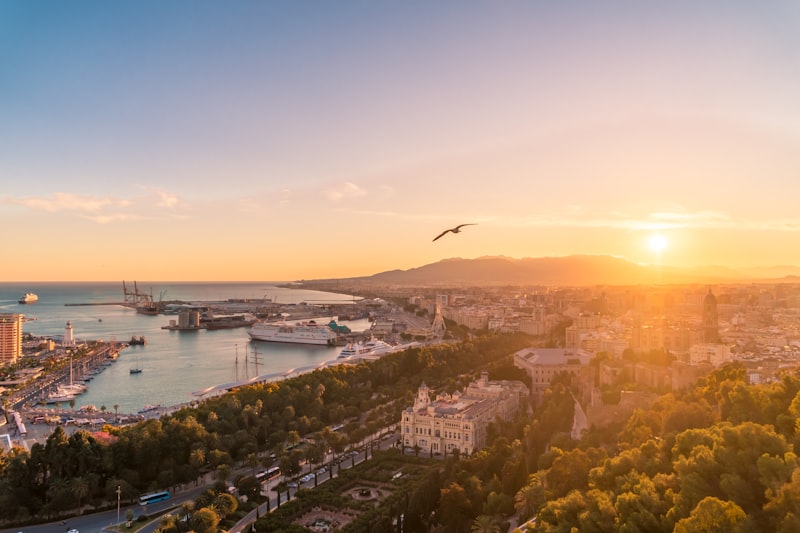Before its integration into the European Union, Spain was a country with economic crises and high unemployment rates, the consequences of civil wars and dictatorships. This context, which led to the emigration of Spaniards to Europe and America, began to change strongly in 1993, when Spain became part of the European Union (EU).
Spain is currently one of the most attractive places in Europe to live. Its history reveals many rich gastronomic traditions. It has a large number of beautiful buildings and architectural works. In addition, it is also characterized by a huge cultural legacy, with important painters, writers and musicians. Furthermore, it has a very high quality educational service, which has allowed it to become the third European country with the highest rate of foreign students from different parts of the world.
Residence in Spain by demonstration of funds is an excellent migratory opportunity. This immigration option is ideal for foreign citizens who wish to: retire, establish their own business, invest in real estate or study. This method of residence is in force and is contemplated in the Organic Law 4/2000 of 11 January on the Rights and Freedoms of Foreigners in Spain and their Social Integration (articles 30 bis and 31) and its Regulations approved by Royal Decree 557/2011, of April 20 (articles 45-49).
The Temporary Non-Profit Residence Permit allows citizens of countries that are not part of the European Union to live in Spain by demonstrating that they have sufficient economic resources to guarantee their maintenance for at least one year. It is a permit aimed at those people who do not intend to work in Spain.
Requirements to obtain the Non-Lucrative Residence
It is very important to have no criminal record and not be in an irregular situation in Spain in order to apply for the permit. On the other hand, the foreign citizen must demonstrate that he has sufficient economic resources of his own. The rule establishes a minimum monthly figure (400% of the IPREM, 2130.04 euros). It also requires health insurance to cover the applicant's health needs.
How to demonstrate the availability of sufficient financial means?
The possession of sufficient economic means to reside in Spain may be accredited by any means of proof that demonstrates the availability of income, preferably on a periodic and recurring basis. Property deeds, certified cheques or credit cards may be provided, accompanied by a bank certificate showing the amount available as credit on the card.
Where is the Non-Lucrative Residence Permit processed?
The procedure is initiated at the Spanish consulate closest to your residence abroad. The initial authorisation will last for one year and will be valid from the date of entry into Spain. Within one month of entering Spain, the holder of the residence permit must apply in person for the foreigner's identity card.
If after the one-year period of validity the foreign citizen still meets the requirements of the regulations, the residence permit can be renewed, obtaining a new residence permit with a validity of two years. It is also possible to apply for a work permit if, after the one-year period, the foreign citizen has a job offer or is self-employed and meets the requirements of the regulations.
Can family members reside in Spain with a Non-Lucrative Residence Permit holder?
Apart from the minimum monthly amount required to ensure the maintenance of the holder, for the maintenance of each of the dependent relatives of the foreign citizen, the rule requires an additional amount that represents 100% of the IPREM (532.51 euros) per month.
Spanish migration policies
Traditionally, Spanish migration policy has been oriented towards the organisation of labour migration flows in accordance with the needs of the labour market, emphasising security aspects but disregarding the internationalisation of the economy. This concept, which was useful in the past, is now insufficient in view of the new global economic reality.
The need to internationalise the Spanish economy, to promote the presence of foreign companies, to attract talent and foreign investment, to deseasonalise and diversify the Spanish tourism sector, as well as the need to eliminate barriers to foreign entrepreneurship and investment in business projects that affect job creation, it was decided to carry out an evaluation in 2012 of the weaknesses and strengths of Spanish immigration regulations.
Note: The content of this page is merely indicative. Only the provisions of the regulations in force at the time of submission of the application apply.
Get an expert evaluation!
Book a 60-minute online consultation for your visa and non-Lucrative residence permit needs in Spain and get practical advice on how to achieve the highest probability of success.
Book your consultation now
![[Hero] How to live in Spain with sufficient economic means?](https://www.echeverriaabogados.com/scripts/timthumb.php?src=https://www.echeverriaabogados.com/images/c/jason-briscoe-5IGprlBT5g4-unsplash.jpg&w=980)
